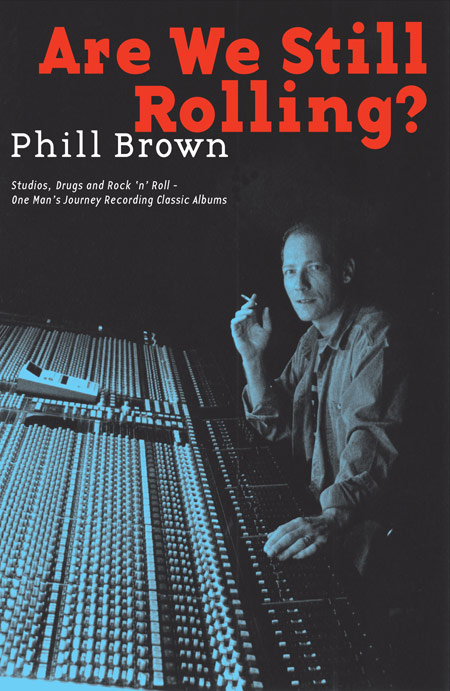
by Phill Brown
Tape Op
Aside from those of eccentrics like Phil Spector, Rick Rubin and Steve Albini, the names of record producers and engineers are completely lost to most people. But while a good portion of an engineer’s responsibility is just getting the music down on tape (or hard drive, as the case may be these days), their decisions and ideas often have as much to do with how an album turns out as those made by the musicians. Technical prowess and an extensive collection of microphones may not be as attention-grabbing as good looks and fiery guitar solos, but they’ve been just as integral to great music over the years.
Phill Brown would no doubt echo those sentiments. Like you, I’d never heard of the guy, even though he’s worked on Jimi Hendrix’s “All Along the Watchtower,” Led Zeppelin’s “Stairway to Heaven,” and the Rolling Stones’ “Sympathy for the Devil.” Since beginning his career in the recording industry when he was just 16, Brown has had his hand in a great number of important recordings as he rose from the rank of tape operator to producer. And having worked with such characters as Jeff Beck, Bob Marley and Kristin Hersh, he’s collected plenty of stories of working on those records. Hence, he’s written a book, Are We Still Rolling? Subtitled, “Studios, Drugs and Rock ’n’ Roll—One Man’s Journey Recording Classic Albums, it is a collection of his experiences from behind the recording console.
Brown began his career in England in the ’60s, following in his older brother’s footsteps at several studios. As such, he was lucky enough to come into contact with acts like the Yardbirds and Small Faces while still getting his legs underneath him. In the ’70s, he was employed at the Island Records house studio, working on records by the Wailers and Traffic, before eventually going to work for himself as a freelancer. It’s a unique tale in that it has been set down in print at all, but as Brown presents it, his story is perhaps not that unusual in his chosen vocation. He comes across very “everyman,” even though his job put him in contact with rock legends.
Published by Tape Op, the publishers of the recording geek periodical, there’s probably more technical information in the book than necessary. It seems to have been written to appeal to a broad audience so it’s probably not necessary for us to know the model number of every microphone Brown ever used. The most interesting parts of the book are those that have very little to do with the technical aspects of recording, like Jeff Beck’s management sending a couple of heavies to the studio to persuade him to renew his contract or when Brown burnt up part of the Wailers’ master tapes while smoking a joint. Brown’s writing is a little dry, but such tales transcend his matter-of-fact tone. As it is, Are We Still Rolling? is interesting for shining some light on the men behind the scenes, but more so for the unique perspective it presents.
Stephen Slaybaugh
The Indie Rock Poster Book
Blank City
Times New Viking Live Review
Aesop Rock, Danzig, and the Antlers Live Reviews
The Feelies Live Review
Surfer Blood Live Review
The Naked and Famous Live Review
The Walkmen and the New Pornographers Live Review
The Indie Cred Test
The Upsetter: The Life & Music of Lee "Scratch" Perry
Papercuts and Mi Ami Live Reviews
Pere Ubu Live Review
Edwyn Collins Live Review
Lemmy: 49% Motherf**ker, 51% Son of a Bitch
